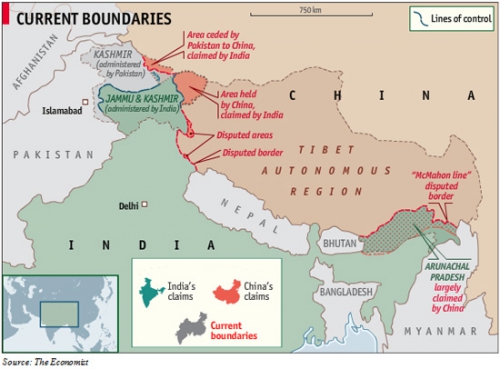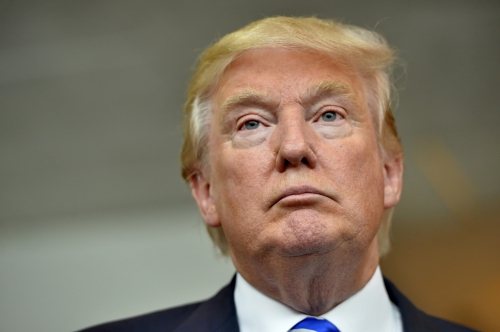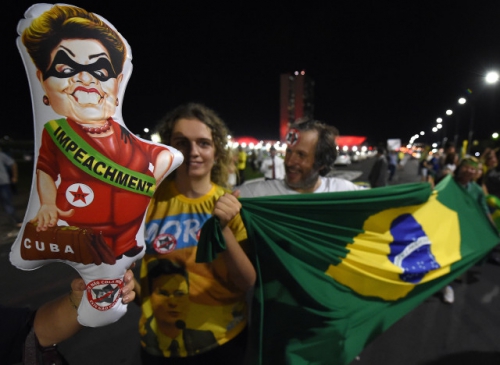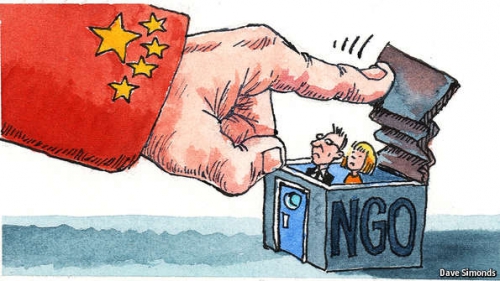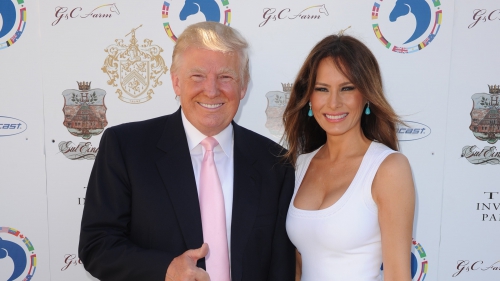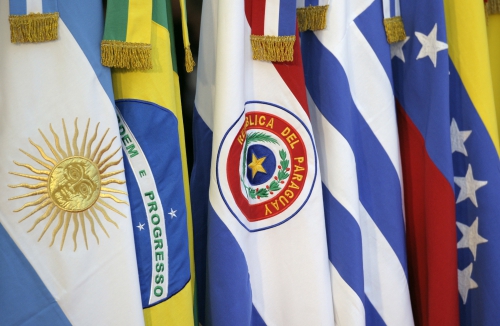Ex: http://lesakerfrancophone.fr
La Chine, grâce à son particularisme culturel, sa longévité civilisationnelle et sa puissance économique, est un des derniers bastions en Asie que l’Empire aura du mal à soumettre à son projet de Nouvel ordre mondial. Le protestantisme évangélique est un des chevaux de bataille de l’Empire pour imposer son modèle dans le monde. La Chine est dans le collimateur, et le sait.
La présence ininterrompue du christianisme en Asie débute au XVIe siècle, avec l’arrivée de Magellan aux Philippines. Souvent associés au colonialisme en Asie, les missionnaires étant jésuites, franciscains, dominicains, le christianisme jouit aujourd’hui d’une image de modernité, par opposition aux religions locales, synonymes de tradition.
Symbole de cette modernité, le christianisme a accompagné les transitions démocratiques en Corée du Sud et aux Philippines. C’est ce glissement des églises chrétiennes, en particulier du protestantisme évangélique, du religieux vers le social, puis vers le politique, qui pose problème dans certains pays asiatiques, la Chine en particulier, même si cela ne fait pas encore les gros titres.
On trouve une présence chrétienne dans à peu près tous les pays de l’Asie de l’Est. Au Japon depuis le XVIIe siècle, à Taïwan, en Mongolie, en Corée du Sud (10% de catholiques et 20% de protestants), à Hong Kong, etc. : les protestants, tantôt baptistes, adventistes, méthodistes, pentecôtistes, se taillent la part du lion, grâce à l’influence géopolitique américaine dans ces pays.
De la même manière aux Philippines, où les catholiques (augustins) évangélisèrent les premiers, dès l’arrivée de Magellan, le catholicisme fut progressivement en compétition avec le protestantisme évangélique à partir du rachat des Philippines par les États-Unis en 1898.
A Taïwan, un territoire revendiqué par la Chine, et obligé des États-Unis, le catholicisme (propagé par les jésuites) n’a pas pu s’y développer de façon significative, en dépit de sa présence antérieure au protestantisme. Les églises à Taïwan sont, malgré les liens diplomatiques officiels de Taipei avec le Saint-Siège, à très grande majorité protestantes.
Malgré cette présence déjà importante, l’Asie est pressentie pour être le plus grand foyer d’expansion du christianisme dans le monde au cours du siècle à venir. Pour atteindre cet objectif, il sera donc nécessaire d’évangéliser de nouveaux territoires et de nouvelles populations. C’est précisément ce que les églises évangéliques baptistes américaines font en Mongolie (500 églises protestantes, et une petite présence catholique), au Vietnam, en Birmanie, en Chine et en Corée du Nord.
La Corée du Nord, paradoxalement surnommée le royaume ermite en dépit de son interdiction de tout culte religieux, peut sembler un choix étrange pour envoyer des missionnaires chrétiens évangéliser une population qui n’est autorisée à pratiquer aucune religion, et qui pour la plupart est plus préoccupée par des questions de subsistance. Il faut donc se poser la question de l’objectif de ces pasteurs, qui entrent plus ou moins clandestinement en Corée du Nord, non pas avec les valises pleines de produits de première nécessité, comme on on est en droit de l’attendre, mais avec des valises pleines de bibles traduites en coréen.
Si l’objectif n’est pas humanitaire, alors quel est-il, et pourquoi a-t-il été jugé supérieur à l’impératif humanitaire? Cet objectif ne peut donc être que de fédérer des convertis autour d’une idéologie autre que celle qui émane du gouvernement. Il s’agit donc d’encouragement à la sédition, puisque les missionnaires vont proposer à la population une religion qui, quelle qu’elle soit, leur est interdite par leur gouvernement. Située à la frontière orientale de la Chine du Nord, la Corée du Nord présente un intérêt stratégique pour les États-Unis, et c’est ainsi qu’il faut comprendre l’intérêt des missions protestantes évangéliques pour cette région.
Les missionnaires qui traversent sporadiquement la frontière sino-coréenne, ou qui accueillent les Nord-Coréens qui s’exilent vers la Chine, sont des pasteurs américains, canadiens, sino-coréens ou américano-coréens, basés en Chine, où leur présence est acceptée. Tel fut le cas du missionnaire protestant Kenneth Bae, arrêté en Corée du Nord en 2012, accusé de préparer une insurrection d’inspiration religieuse, qu’il avait baptisée Operation Jericho, référence biblique aux murs de la ville qui furent détruits par les trompettes des Israélites.
En Chine, le christianisme a fait une remarquable percée dans les vingt à trente dernières années, grâce à la tolérance du régime de Pékin, et sa compréhension de l’importance d’un retour de la spiritualité dans une société qui en avait été privée pendant toute la période maoïste.
La grande majorité des églises chrétiennes accréditées en Chine sont protestantes (principalement baptistes, influence des pasteurs sino-américains oblige), car elles ne dépendent pas du Vatican, qui n’a pas de relations diplomatiques avec la Chine. Elles ne répondent pas non plus, en théorie, à une autorité religieuse supérieure venant d’un autre État, comme le Pape, qui, du point de vue de Pékin, aurait une influence jugée excessive sur ses fidèles en Chine (il existe des précédents historiques…), et entrerait en concurrence avec la suprématie du Parti.
Donc, en apparence, le protestantisme évangélique ne présente pas de danger pour Pékin, et remplit une fonction bien précise, en apparence inoffensive, de redonner une spiritualité à une population qui en demande, et qui est autorisée à choisir entre plusieurs formes de bouddhisme, le christianisme, le taoïsme et l’islam.

Le problème est que le protestantisme évangélique vient des États-Unis, et que cette foi est gérée comme une multinationale : département de la stratégie (méthodes de travail), ressources humaines (recrutement et formation des pasteurs), marketing (publications, séminaires), logistique, relations publiques (rayonnement international grâce à une collaboration avec des artistes chrétiens, chanteurs, musiciens, acteurs, etc., qui tournent dans le monde entier).
Il est donc naturel que les églises protestantes évangéliques soient devenues, elles aussi, un outil de politique étrangère au service de l’Empire, comme l’attestent certaines informations émanant de personnalités de l’église évangélique elle-même, qui déplorent les relations incestueuses avec la CIA depuis plus de cinquante ans.
Il est établi que le travail de terrain des pasteurs dans les régions reculées du monde entier est systématiquement soumis à des séances de debriefing à Washington.
En plus des nombreux témoignages, souvent rétractés par la suite, de personnalités de la nébuleuse évangélique, et de personnalités à la retraite de l’industrie du renseignement, il est intéressant de rappeler la confession du Président américain Gerald Ford à ce sujet en 1975, sur l’utilisation passée, et fort probablement future, de missionnaires comme agents de la CIA, en violation flagrante du principe de séparation de l’État et de l’Église.
Ce qui ressort de ces révélations est que l’hégémonie américaine continue d’être promue dans le monde par une nébuleuse d’agents de propagande extraordinairement diversifiée, la religion et l’humanitaire jouant le rôle de fer de lance.
Le travail, dès les années 1960 en Amérique du Sud, de la fondation Wycliffe Bible Translators (aussi connue sous le nom de Summer Institute of Linguistics, ou SIL), associée à l’église évangélique Southern Baptists et à la famille Rockefeller (propriétaires de la Standard Oil) pour pacifier les populations pauvres locales, les convertir au christianisme évangélique, et les exproprier de gré ou de force pour prendre possession des ressources locales (au profit, incidemment, de la Standard Oil), semble avoir été financé par la communauté du renseignement américain. Ce travail d’évangélisation et de pacification est décortiqué dans le remarquable ouvrage Thy Will Be Done, The Conquest of the Amazon, de Gerard Colby et Charlotte Dennett, publié chez Harper Collins en 1995.
Cet ouvrage mentionne notamment deux points intéressants :
– Dès 1930, The Laymen’s Foreign Missions Inquiry (l’enquête sur les missions d’évangélisation des profanes à l’étranger), à l’initiative de John D. Rockefeller Jr. (Standard Oil) et de John Mott (pasteur méthodiste, dirigeant des YMCA et fondateur en 1948 du Conseil œcuménique des églises) a commandité une recherche de terrain sur toute l’Asie, et publié un rapport en 1932 appelé Rethinking Missions (Repenser les missions d’évangélisation).
– Une relation, connue aujourd’hui de tous, entre la CIA et l’agence indépendante du gouvernement des États-Unis USAid (qui comme son nom ne l’indique pas, dépend de la branche exécutive du gouvernement fédéral américain) au Laos et ailleurs en Asie, datant de l’époque de la Guerre du Vietnam:
«Le directeur d’USAid sous l’administration Nixon, John Hannah, a reconnu publiquement qu’USAid a financé des opérations de la CIA au Laos, et des révélations ultérieures établissent bien l’existence d’une telle collaboration en Équateur, en Uruguay, en Thaïlande et aux Philippines. Ces révélations pourraient causer du tort à toutes les missions d’évangélisation, mais le Summer Institute of Linguistics (SIL) était particulièrement vulnérable […] Dès les années 1960, SIL tirait de confortables revenus de l’USAid par le biais de gouvernements étrangers destinataires de l’aide USAid, ou directement de programmes financés par l’USAid dans les domaines de l’éducation bilingue et l’établissement de coopératives de développement agricole. À ces revenus venait s’ajouter une aide en équipement venant de surplus militaires, incluant des hélicoptères qui étaient exfiltrés du Vietnam et donnés à SIL.»
De nombreux exemples récents attestent que ces pratiques ont fait des émules, comme en atteste l’enquête du gouvernement américain en 1976 sur les liens de la CIA coréenne (KCIA) avec la secte évangélique du révérend Moon, et continuent depuis, au Venezuela, en Corée du Nord, en Birmanie, et à Singapour, où plusieurs pasteurs ont été accusés et incarcérés pour activités de sédition contre l’État.
En Birmanie aujourd’hui, les pasteurs baptistes convertissent en masse les membres des groupes ethniques (les Ho, les animistes, les bouddhistes Asho, etc.) historiquement opprimés par le régime de Rangoon. Comme à l’accoutumée, l’Empire endoctrine et forme les opposants naturels des régimes qui sont sur sa route, pour plus tard attaquer ces mêmes régimes par dissident interposé. Suivant les techniques de guérilla, ils travaillent en églises-cellules (cell-churches).

Il existe depuis quelques années une forte activité de ces églises protestantes baptistes en Birmanie, notamment à la frontière avec la Chine. On peut imaginer que ce développement ne doit pas manquer d’attirer l’attention de Pékin, qui pourrait se sentir, là aussi, encerclé et pénétré par une force d’influence extérieure, qui au contraire du Vatican, ne dit pas son nom, n’a pas de centre, n’a pas de leader, mais n’en est pas moins influente sur les esprits. Le fonctionnement des églises-cellules, qui vouent une sorte de culte de la personnalité au pasteur venu de l’étranger, ou ayant une relation proche avec les États-Unis, fait parfois penser à celui de sectes, notamment celles du mouvement protestant néo-charismatique.
En quoi une importante communauté évangélique peut-elle être une source d’inquiétude pour un gouvernement asiatique?
L’intervention avérée de pasteurs et autres intervenants accrédités (télévangélistes, conférenciers, chanteurs, etc.) dans les églises évangéliques pour donner des consignes de vote à leurs fidèles, comme ce fut le cas en Corée du Sud, donne une idée de ce qui attend les pays asiatiques qui laissent se répandre le protestantisme évangélique hors de tout contrôle.
En octobre 2011, lors d’élections en Corée du Sud, un groupe de chrétiens protestants a été accusé par la Commission électorale de la Communauté urbaine de Séoul d’envoyer des courriels de nature politique à des citoyens non-pratiquants et non-membres de leurs groupes, contenant une consigne de vote pour un candidat conservateur.
Dans des pays où il n’y a pas d’élections comme la Chine, la Birmanie ou la Corée du Nord, l’action des convertis, souvent choisis délibérément parmi les classes défavorisées (minorités ethniques, populations paupérisées), bien que pas uniquement, peut mener à des actions de nature anti-gouvernementale. Ce fut le cas récemment en Chine, à Wenzhou (la Jérusalem de la Chine), où l’opposition de fidèles protestants à la destruction d’une église décidée par le gouvernement local s’est soldée en faveur des manifestants. Comme le dit un pasteur chinois à cette occasion, «le gouvernement chinois se méfie de l’Église chrétienne, mais ne peut se mettre à dos 70 millions de fidèles» (dont 10 à 12 millions de catholiques de l’église officielle).
C’est justement ce militantisme grassroot, préconisé par les méthodes de prosélytisme et d’évangélisme baptiste, qui pose problème au gouvernement, car il prend vite une dimension politique, renforcée par son association à diverses ONG et autres acteurs de la société civile, souvent financés depuis l’étranger.
On remarque dans la littérature protestante évangélique une constante, celle de parler de persécution des chrétiens en Asie, alors que le nombre d’églises ne cesse d’y augmenter depuis 30 ans. Il s’agit encore de cette technique éprouvée sous d’autres latitudes, selon laquelle un agresseur se décrit comme victime de la situation qu’il a créée : ici, elle permet de dénoncer des États policiers non démocratiques (le Mal absolu), tout en fédérant les fidèles à l’étranger, pour qu’ils donnent de leur personne et partent évangéliser à leur tour, et lever des fonds pour les victimes (Le Bien).
Si persécution sporadique de chrétiens il y a en Asie, elle est éventuellement le fait d’une concurrence avec d’autres religions en cours d’implantation, comme l’islam dans le sud des Philippines, et non du fait de gouvernements, qui ne font que tenter de maîtriser l’expansion d’une foi considérée comme étrangère, et qui recourt à des techniques de guérilla pour se répandre.
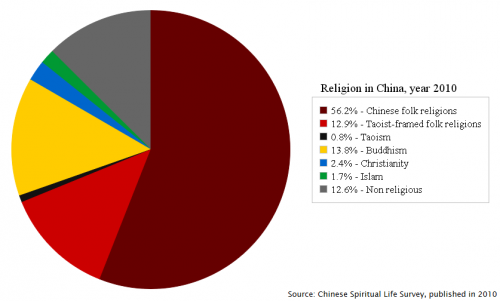
Le protestantisme évangélique a beau s’autodéclarer religion autochtone, ce n’est qu’un mantra destiné à convertir plus de fidèles qui auraient des réticences à adopter une foi jugée étrangère par leur gouvernement.
Ce n’est que lorsque l’ordre public est fortement perturbé, comme à Wenzhou ou en Corée du Nord, qu’un pasteur peut se retrouver emprisonné et les fauteurs de trouble arrêtés. Rien qu’en Chine, entre 1949 à 2015 (mais en fait entre 1978 et 2015, puisque la liberté de religion a été anéantie pendant la révolution culturelle qui dura jusqu’en 1976), le nombre de protestants est passé de 1 à 70 millions, reconnus par l’État, avec leurs églises (plus de 50 000 aujourd’hui), et leur interlocuteur gouvernemental (le Mouvement patriotique des Trois Autonomies) : peut-on parler de persécution des protestants en Chine?
Les réunions que le Parti sanctionne sont celles tenues illégalement dans les maisons des fidèles, avec des pasteurs étrangers inconnus des services d’immigration ou du ministère de tutelle des religions en Chine, venant sur des visas touristiques, ne déclarant pas leur occupation ni l’objet de leur visite en Chine. Ce sont ces églises illégales qui sont à l’origine de l’envoi de missionnaires en Corée du Nord. «Nous voulons aider, et c’est plus facile pour nous que pour un pasteur anglais, sud-coréen ou américain», déclare anonymement un pasteur d’une église illégale en Chine.
Il semble donc établi que le prosélytisme protestant évangélique en Asie est un véhicule comme tant d’autres de pénétration de l’Empire, dans sa quête d’imposer son Nouvel Ordre Mondial.
Est-ce qu’une collaboration avec le Vatican ne serait pas finalement plus bénéfique au gouvernement chinois et au Vatican? Le catholicisme est bien moins prosélyte que son pendant protestant, ce qui est d’ailleurs bien la raison pour laquelle il perd du terrain en Afrique, en Asie et en Amérique du Sud. Il est aussi plus détaché traditionnellement de la politique, comme en atteste une lettre adressée en 2007 par le Pape Benoît XVI aux catholiques de Chine, tentant d’établir une méthode de collaboration avec l’autorité de tutelle des catholiques de Chine, l’Association patriote catholique de Chine (qui, pour être autorisée, a dû officiellement désavouer le Pape).
Ce qui pouvait être perçu comme une tentative du Pape Benoît XVI de travailler vers une normalisation des relations avec la Chine sur une base de respect mutuel est peut être moins vrai depuis l’arrivée du Pape François.
Il est probable que Pékin aurait été plus à l’aise de continuer les négociations avec le Pape Benoît XVI, qui oscillaient entre des périodes de consensus puis de différends, plutôt qu’avec son successeur, qui est plus préoccupé de générer un bruit de fond médiatique sur des questions sociétales, plutôt que spirituelles. Les prises de position du Pape François, publiquement pro-immigration, pro-LGBT et droit-de-l’hommistes ne sont pas pour rassurer Pékin, pour qui ces trois questions sont d’anciennes préoccupations qui ne disparaîtront pas de sitôt. Tout d’abord, la crainte d’une immigration incontrôlée de réfugiés nord-coréens si le régime de Corée du Nord s’effondrait; la décision année après année de maintenir l’interdiction du prosélytisme LGBT; et une définition des droits de l’homme différente de la version messianique et moralisatrice de l’Occident.
L’expansion agressive du protestantisme évangélique américain en Asie, aux frontières nord, est et sud de la Chine et en Chine elle-même, ne peut qu’inquiéter le gouvernement chinois. Le rapprochement avec le catholicisme, moins prosélyte et moins porté au discours politique, est une alternative que le régime chinois pourrait envisager. Seule la question de l’ordination des évêques continue de diviser le Vatican et l’Association patriote catholique de Chine, après avoir été en passe d’être résolue sous Benoît XVI, avec des ordinations concertées pendant quelques années.
Malheureusement, les récents développements au Vatican, les prises de position sociétales de la nouvelle papauté, qui causent l’incompréhension même en Occident, ne peuvent que refroidir toute velléité de rapprochement avec le Vatican que la Chine aurait pu avoir, alors qu’il aurait été bénéfique aux deux États.
Le régime chinois, contraint de faire un choix entre un évangélisme baptiste agressif et cheval de Troie de l’Empire, et une mouture nouvelle du catholicisme, droit-de-l’hommiste, moraliste et véhiculant elle aussi les valeurs du même Empire, mais dans une version européenne et jésuite (et donc aussi avec une forte composante évangélique), n’aura peut-être d’autre choix que de maintenir le statu quo voire de durcir le ton vis-à-vis de tous les Chrétiens de Chine.
Laurent Schiaparelli
Article original pour Le Saker Francophone






 del.icio.us
del.icio.us
 Digg
Digg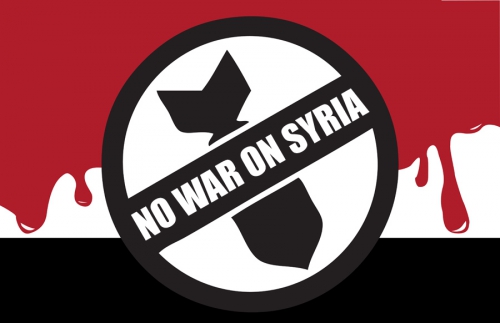
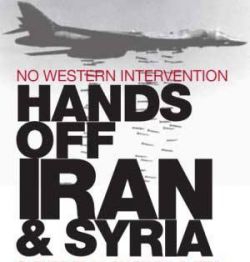 Next, let’s turn to
Next, let’s turn to 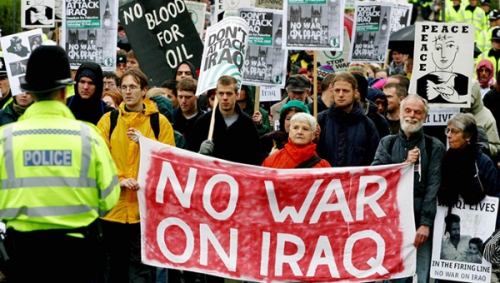

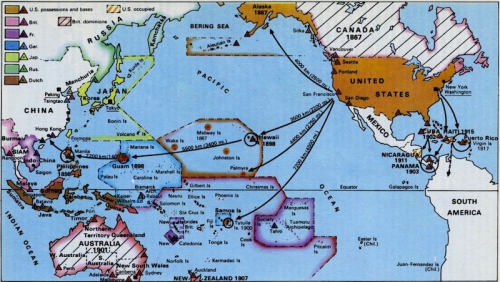
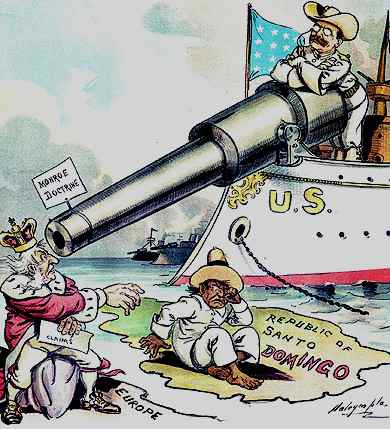
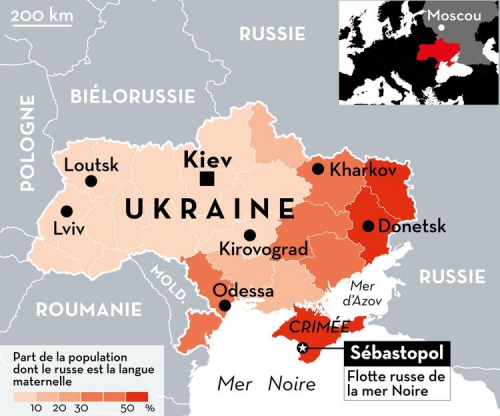
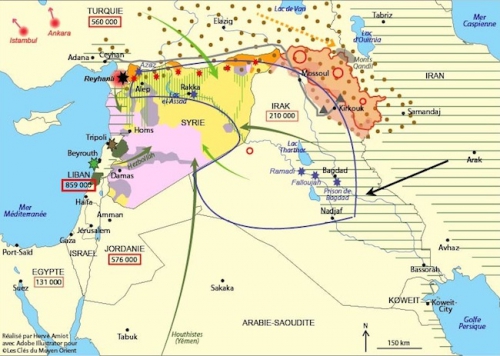
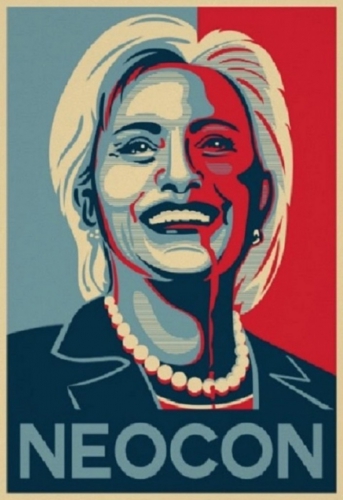



 It is not enough to view intellectuals as the makers of political change through their transmutation of culture. It is also necessary to consider the state and the elite who will rule it. Politics becomes impossible to conduct without the type of hardworking, ruthless, and ambitious people who generally make up the political class.
It is not enough to view intellectuals as the makers of political change through their transmutation of culture. It is also necessary to consider the state and the elite who will rule it. Politics becomes impossible to conduct without the type of hardworking, ruthless, and ambitious people who generally make up the political class.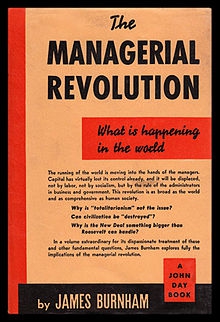 His books of greatst interest are The Machiavellians and The Managerial Revolution. The first one is mainly about the political theories of a number of thinkers who Burnham considered to be a part of what he called the Machiavellian tradition. The main argument of the book is that politics, defined as a struggle for power, can never be removed from human existence. In every society, there must be one group of people who rule, and one group who is the subject of that rule. In the second book, Burnham makes the case that a revolution is well under way, but not the type of revolution which is often advocated by the Left. The managerial revolution is taking place within the bureaucracy of the modern state, and is the revolution of the managers, at the expense of other forms of leadership.
His books of greatst interest are The Machiavellians and The Managerial Revolution. The first one is mainly about the political theories of a number of thinkers who Burnham considered to be a part of what he called the Machiavellian tradition. The main argument of the book is that politics, defined as a struggle for power, can never be removed from human existence. In every society, there must be one group of people who rule, and one group who is the subject of that rule. In the second book, Burnham makes the case that a revolution is well under way, but not the type of revolution which is often advocated by the Left. The managerial revolution is taking place within the bureaucracy of the modern state, and is the revolution of the managers, at the expense of other forms of leadership. When it comes to Dante, Burnham goes on to place his seemingly independent normative principles in their proper context. He shows that Dante had been involved in an extensive and lengthy conflict between the Ghibelline and the Guelph factions. Dante and the faction to which he belonged lost to their rivals, and he went to the Holy Roman Emperor to ask for his support. When these facts were presented, it became quite clear that Dante had put forward his principles with the hope of winning the good graces of the Emperor, and thus attempted to justify his rule. That is the true meaning of De Monarchia, as Burnham sees it.
When it comes to Dante, Burnham goes on to place his seemingly independent normative principles in their proper context. He shows that Dante had been involved in an extensive and lengthy conflict between the Ghibelline and the Guelph factions. Dante and the faction to which he belonged lost to their rivals, and he went to the Holy Roman Emperor to ask for his support. When these facts were presented, it became quite clear that Dante had put forward his principles with the hope of winning the good graces of the Emperor, and thus attempted to justify his rule. That is the true meaning of De Monarchia, as Burnham sees it.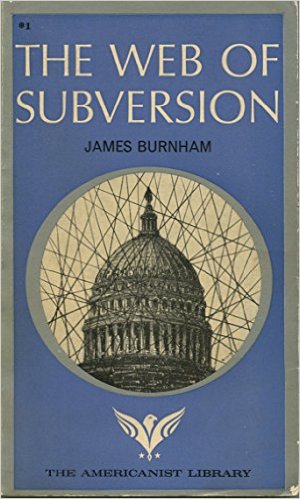 It is important not to overlook the importance of the managerial state, and the importance of the state in general. It is not enough to merely philosophise; there needs to be a political elite and a physical structure which underpins this elite. We can take Sweden as an example. Sweden took a turn toward the Left during the 1960s and never really recuperated. This was not achieved solely through the work of intellectuals and Leftist philosophical theories. What happened in addition to this was that a large number of people were recruited to work as functionaries and civil servants in the ever-growing state machinery. Social workers, teachers, and administrators were recruited and formed a bureaucracy the like of which Sweden had never experienced before. They became the new class of managers. Regardless of what kind of government gets elected, this establishment stays more or less the same.
It is important not to overlook the importance of the managerial state, and the importance of the state in general. It is not enough to merely philosophise; there needs to be a political elite and a physical structure which underpins this elite. We can take Sweden as an example. Sweden took a turn toward the Left during the 1960s and never really recuperated. This was not achieved solely through the work of intellectuals and Leftist philosophical theories. What happened in addition to this was that a large number of people were recruited to work as functionaries and civil servants in the ever-growing state machinery. Social workers, teachers, and administrators were recruited and formed a bureaucracy the like of which Sweden had never experienced before. They became the new class of managers. Regardless of what kind of government gets elected, this establishment stays more or less the same.
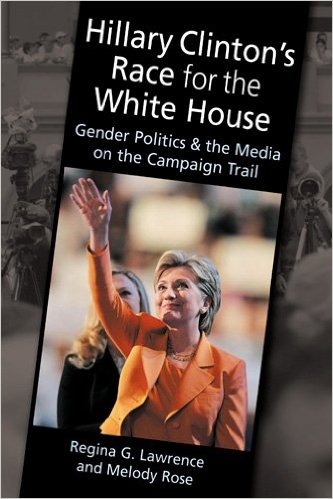 Ces manœuvres visent leur ennemi principal, l’homme pensant. La masculinité est devenue un gros mot, selon un sondage qui révèle que seuls 2% des garçons anglais se considèrent comme « complètement mâles ». L’incarnation de la juste colère contre l’Occident, Poutine le Téméraire, est décrit comme un « macho », raison suffisante pour pousser au changement de régime en Russie. Dans un remake de Ghostbusters, les courageux guerriers contre les esprits du mal sont tout-féminin (une femme noire corpulente: voilà la formule encore plus politiquement correcte) tandis que l’homme blanc aspire à un poste de secrétaire pour la troupe. Dans un un univers culturel plus large, écrit Isabel Hardman, les hommes figurent dans les publicités comme des gens sans espoir, des bouffons gras tenant une bière dans une main et une paire de pinces pour barbecue dans l’autre, alors que les femmes vous font les yeux doux, et ont la main mise sur toutes choses, la maison, la voiture, la famille. Dans ce monde de masculinité en déroute, la victoire de Mrs. Clinton et la guerre qui s’en suivra sont inévitables.
Ces manœuvres visent leur ennemi principal, l’homme pensant. La masculinité est devenue un gros mot, selon un sondage qui révèle que seuls 2% des garçons anglais se considèrent comme « complètement mâles ». L’incarnation de la juste colère contre l’Occident, Poutine le Téméraire, est décrit comme un « macho », raison suffisante pour pousser au changement de régime en Russie. Dans un remake de Ghostbusters, les courageux guerriers contre les esprits du mal sont tout-féminin (une femme noire corpulente: voilà la formule encore plus politiquement correcte) tandis que l’homme blanc aspire à un poste de secrétaire pour la troupe. Dans un un univers culturel plus large, écrit Isabel Hardman, les hommes figurent dans les publicités comme des gens sans espoir, des bouffons gras tenant une bière dans une main et une paire de pinces pour barbecue dans l’autre, alors que les femmes vous font les yeux doux, et ont la main mise sur toutes choses, la maison, la voiture, la famille. Dans ce monde de masculinité en déroute, la victoire de Mrs. Clinton et la guerre qui s’en suivra sont inévitables.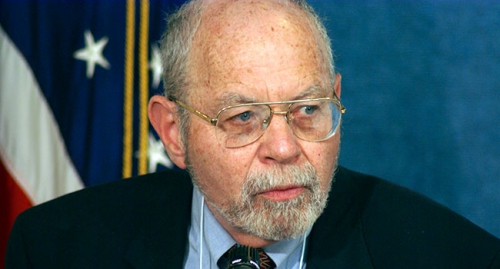
 Flynn’s still highly readable
Flynn’s still highly readable 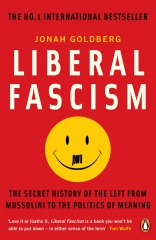 While New Deal critics tried to understand fascism in their time, today’s GOP propagandists do not try to understand anything about this interwar movement. They make their living by labeling the Democrats “fascists” and then identifying fascism and the Democrats with the Left. Jonah Goldberg’s best-selling
While New Deal critics tried to understand fascism in their time, today’s GOP propagandists do not try to understand anything about this interwar movement. They make their living by labeling the Democrats “fascists” and then identifying fascism and the Democrats with the Left. Jonah Goldberg’s best-selling 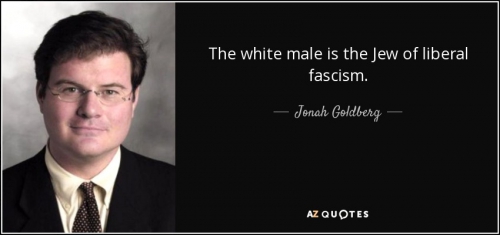
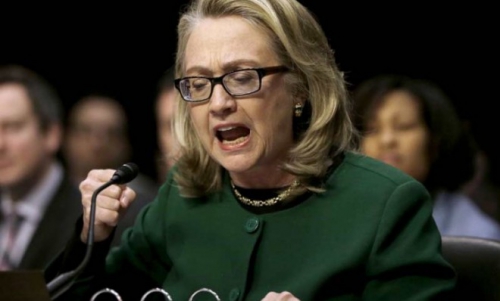



 As war erupted in Europe in September 1939 with Hitler’s and Stalin’s dismemberment of Poland, European gold was flooding into the United States. In 1935 US official gold reserves had been valued at just over $9 billion. By 1940 after the onset of war in Europe, they had risen to $20 billion. As desperate European countries sought to finance their war effort, their gold went to the United States to purchase essential goods. By the time of the June 1944 convening of the international monetary conference at Bretton Woods, the United States controlled fully 70% of the world’s monetary gold, an impressive advantage. That 70% did not even include calculating the captured gold of the defeated Axis powers of Germany or Japan, where exact facts and data were buried in layers of deception and rumor.
As war erupted in Europe in September 1939 with Hitler’s and Stalin’s dismemberment of Poland, European gold was flooding into the United States. In 1935 US official gold reserves had been valued at just over $9 billion. By 1940 after the onset of war in Europe, they had risen to $20 billion. As desperate European countries sought to finance their war effort, their gold went to the United States to purchase essential goods. By the time of the June 1944 convening of the international monetary conference at Bretton Woods, the United States controlled fully 70% of the world’s monetary gold, an impressive advantage. That 70% did not even include calculating the captured gold of the defeated Axis powers of Germany or Japan, where exact facts and data were buried in layers of deception and rumor.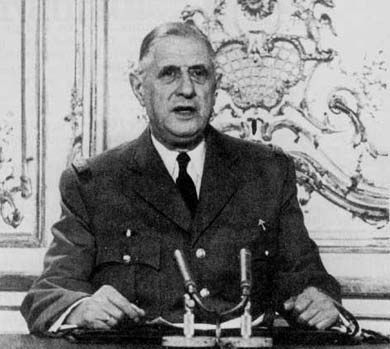 French President Charles de Gaulle, acting on advice of his conservative financial adviser, Jacques Rueff, ordered the Bank of France to begin to redeem its rapidly accumulating trade surplus dollars for gold, something then legal under the rules of Bretton Woods. The conservative German Bundesbank followed in demanding US gold for dollars. In 1968 in one of the first crude versions of their Color Revolutions, the CIA and US State Department toppled President de Gaulle in the events known as the May 1968 student revolt. Despite the replacement of de Gaulle by former Rothschild banker, Georges Pompidou, the foreign demand for Federal Reserve gold redemptions increased as Washington budget deficits to finance the ill-conceived Vietnam War exploded.
French President Charles de Gaulle, acting on advice of his conservative financial adviser, Jacques Rueff, ordered the Bank of France to begin to redeem its rapidly accumulating trade surplus dollars for gold, something then legal under the rules of Bretton Woods. The conservative German Bundesbank followed in demanding US gold for dollars. In 1968 in one of the first crude versions of their Color Revolutions, the CIA and US State Department toppled President de Gaulle in the events known as the May 1968 student revolt. Despite the replacement of de Gaulle by former Rothschild banker, Georges Pompidou, the foreign demand for Federal Reserve gold redemptions increased as Washington budget deficits to finance the ill-conceived Vietnam War exploded.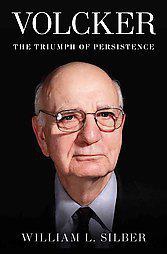 By August 1971, President Nixon was advised by his Assistant Treasury secretary, Paul Volcker, a former executive at Rockefeller’s Chase Manhattan Bank, to essentially tear up the Bretton Woods Treaty and declare the US dollar a free-floating paper no longer redeemable in gold. The Federal Reserve’s gold reserves over the previous several years had been drained by foreign central banks fearful of the import of US dollar inflation as Washington refused pleas to devalue the dollar to re-stabilize the system. Rueff and France were calling for a 100% dollar devaluation against the Franc or Deutschmark.
By August 1971, President Nixon was advised by his Assistant Treasury secretary, Paul Volcker, a former executive at Rockefeller’s Chase Manhattan Bank, to essentially tear up the Bretton Woods Treaty and declare the US dollar a free-floating paper no longer redeemable in gold. The Federal Reserve’s gold reserves over the previous several years had been drained by foreign central banks fearful of the import of US dollar inflation as Washington refused pleas to devalue the dollar to re-stabilize the system. Rueff and France were calling for a 100% dollar devaluation against the Franc or Deutschmark.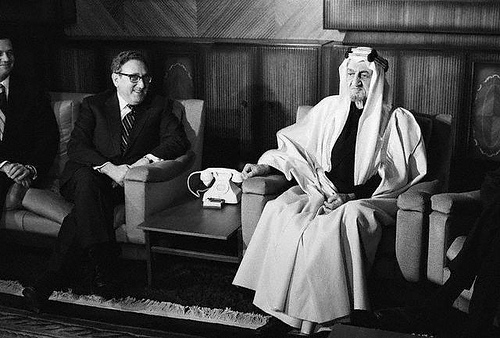

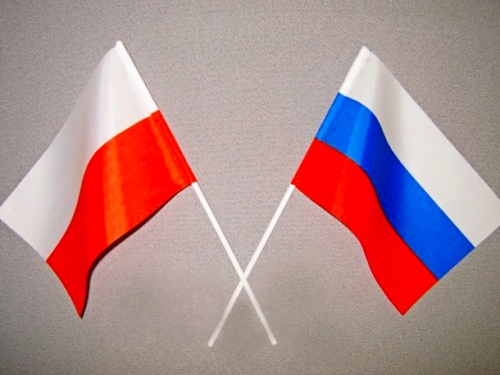
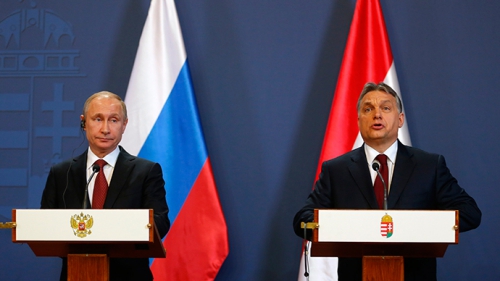
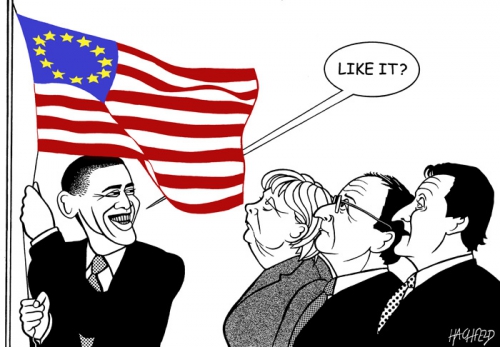
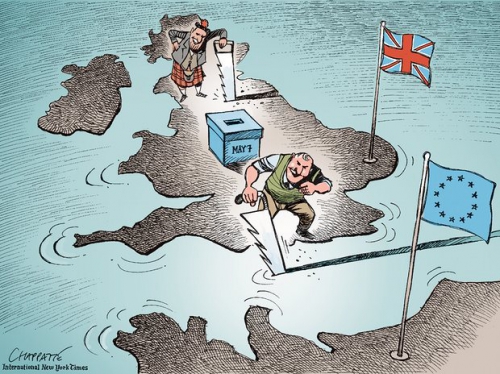






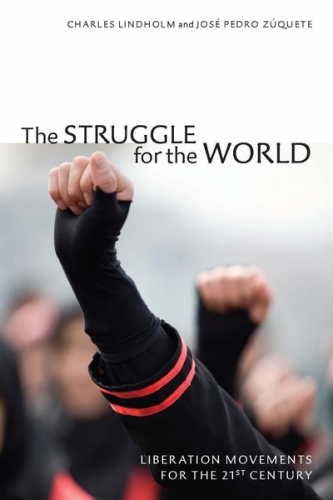 For instance,
For instance,  In chapter 1, Hawley argues that modern American conservatism was defined by William F. Buckley and National Review in the 1950s. The conservative movement was a coalition of free market capitalists, Christians, and foreign policy hawks. Hawley points out that based on ideology alone, there is no necessary reason why any of these groups would be Right wing or allied with each other. Indeed, the pre-World War II “Old Right” of people like Albert Jay Nock and H. L. Mencken tended to be anti-interventionist, irreligious, and economically populist and protectionist rather than free market. National Review was also philo-Semitic from the start and increasingly anti-racist, whereas the pre-War American Right had strong racialist and anti-Semitic elements. What unified the National Review coalition was not a common ideology but a common enemy: Communism.
In chapter 1, Hawley argues that modern American conservatism was defined by William F. Buckley and National Review in the 1950s. The conservative movement was a coalition of free market capitalists, Christians, and foreign policy hawks. Hawley points out that based on ideology alone, there is no necessary reason why any of these groups would be Right wing or allied with each other. Indeed, the pre-World War II “Old Right” of people like Albert Jay Nock and H. L. Mencken tended to be anti-interventionist, irreligious, and economically populist and protectionist rather than free market. National Review was also philo-Semitic from the start and increasingly anti-racist, whereas the pre-War American Right had strong racialist and anti-Semitic elements. What unified the National Review coalition was not a common ideology but a common enemy: Communism.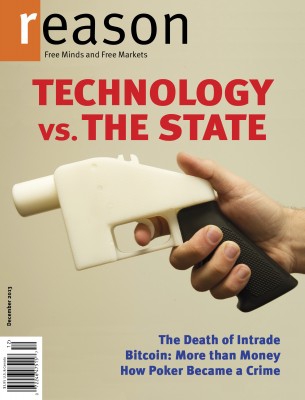 Chapter 5, “Ready for Prime Time?” is devoted to mainstream libertarianism, including Milton Friedman, the Koch Brothers, the Cato Institute, Reason magazine, the Ron Paul movement, and libertarian youth organizations. Chapter 6, “Enemies of the State,” deals with more radical strands of libertarianism, including 19th-century American anarchists like Josiah Warren and Lysander Spooner, the Austrian School of economics, Murray Rothbard, Hans-Hermann Hoppe, Lew Rockwell, the Mises Institute, and the Libertarian Party. Again, Hawley has read widely with an unfailing eye for essentials.
Chapter 5, “Ready for Prime Time?” is devoted to mainstream libertarianism, including Milton Friedman, the Koch Brothers, the Cato Institute, Reason magazine, the Ron Paul movement, and libertarian youth organizations. Chapter 6, “Enemies of the State,” deals with more radical strands of libertarianism, including 19th-century American anarchists like Josiah Warren and Lysander Spooner, the Austrian School of economics, Murray Rothbard, Hans-Hermann Hoppe, Lew Rockwell, the Mises Institute, and the Libertarian Party. Again, Hawley has read widely with an unfailing eye for essentials. Paleoconservatism is defined in opposition to neoconservatism, the largely Jewish intellectual movement that largely took over mainstream conservatism by the 1980s, aided by William F. Buckley who dutifully purged their opponents. Since the neoconservatives are largely Jewish, and many of the founders were ex-Marxists or Cold War liberals, their ascendancy has meant the subordination of Christian conservatives and free marketeers to the hawkish interventionist wing of the movement. Now that the Cold War is over, the primary concern of neoconservative hawks is tricking Americans into fighting wars for Israel.
Paleoconservatism is defined in opposition to neoconservatism, the largely Jewish intellectual movement that largely took over mainstream conservatism by the 1980s, aided by William F. Buckley who dutifully purged their opponents. Since the neoconservatives are largely Jewish, and many of the founders were ex-Marxists or Cold War liberals, their ascendancy has meant the subordination of Christian conservatives and free marketeers to the hawkish interventionist wing of the movement. Now that the Cold War is over, the primary concern of neoconservative hawks is tricking Americans into fighting wars for Israel. Chapter 9, “Voices of the Radical Right,” covers White Nationalism in America, with discussions of progressive era racialists like Madison Grant and Lothrop Stoddard; contemporary race realism; the rise and decline of such organizations as the KKK, American Nazi Party, Aryans Nations, and the National Alliance; the world of online White Nationalism; and Kevin MacDonald’s work on the Jewish question — which brings us up to where we started, namely the task of forging a North American New Right.
Chapter 9, “Voices of the Radical Right,” covers White Nationalism in America, with discussions of progressive era racialists like Madison Grant and Lothrop Stoddard; contemporary race realism; the rise and decline of such organizations as the KKK, American Nazi Party, Aryans Nations, and the National Alliance; the world of online White Nationalism; and Kevin MacDonald’s work on the Jewish question — which brings us up to where we started, namely the task of forging a North American New Right.